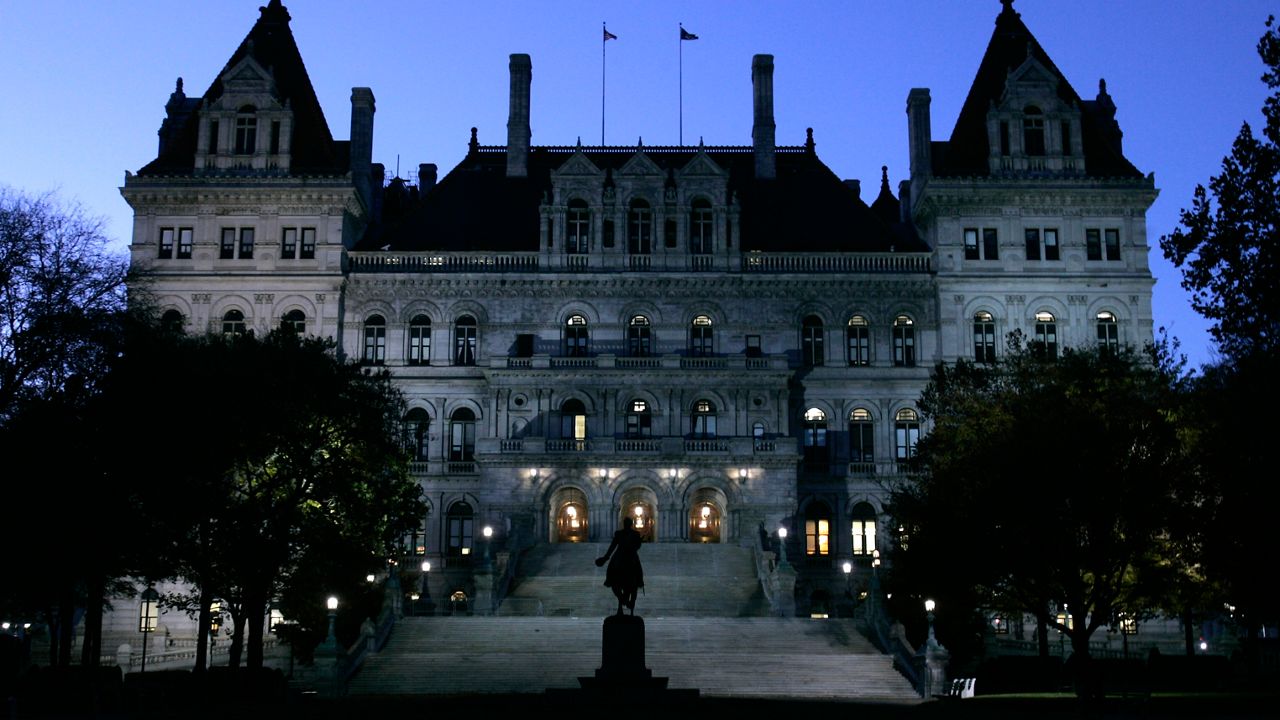State lawmakers and Gov. Andrew Cuomo this week are expected to put the finishing touches on a $190 billion spending plan. It's an unusual budget year, of course, for several reasons: Masked lawmakers are limiting their time in the chamber, Assembly Speaker Carl Heastie is in quarantine after testing positive for COVID-19 and much of the work is being done remotely.
And it's also unusual for another reason: New York is flush with cash thanks to Uncle Sam. The $1.9 trillion relief package approved this month by Congress included $12.5 billion in direct aid for New York to offset pandemic-related revenue losses. With that in mind, here are five things to watch for as the budget nears the finish line:
1. Taxes
What's a few billion dollars among friends? State lawmakers want to increase taxes on upper income New Yorkers through a higher personal income tax rate. Gov. Andrew Cuomo proposed a more modest tax increase for those who earn $5 million and above. Democrats in the state Senate and Assembly have also proposed a suite of tax increases that touch on the benefits of being rich, like investment windfalls and second homes.
Cuomo has been hesitant to increase taxes on rich people, worried of the effect of wealthy people leaving the state and leaving New York bereft of millionaires and billionaires to tax and raise revenue. It is an increasingly delicate dance each year.
But Democrats, including Senate Majority Leader Andrea Stewart-Cousins, view the tax debate as a chance for a reset. The $12.5 billion in aid is a one-time gift that allows New York to consider budget gaps in future years and fund programs for education and health care in the process.
Last week, Cuomo signaled he was willing to compromise. After all, the budget plans only show the various sides being about $5 billion or so apart.
"The Assembly and Senate have certain legal rights. I have certain legal rights and we try to compromise without having a legal battle or without shutting down the state. That’s the same dynamic every year, and that’s what we’re doing again this year. So you have both policy items, if you will, that I’m very focused on, and then you have a numerical differential on the financial need," Cuomo said. "My number’s been 2 and a half billion dollars. They’re at $7 billion. And that, there’s a differential on the numbers, and there are differentials on the matter of policy, and what we try to do is compromise the entirety."
2. Education
Typically the most pitched battles in the budget are over how to fund New York's schools. The debate often highlights the power of the state's teachers' unions as well as the inequities between school districts within the same state: those that have the resources to spend more thanks to their broad local tax base, and those that need more help from Albany.
This year, lawmakers want to increase spending by $4.2 billion over the next several years, a key number for education advocates in New York. For Democrats, it would fulfill a long-sought promise stretching back a decade.
And if the deal is cemented in the budget with nary a whimper, it would be a real sea change in how the school funding issue is even raised in the budget.
3. Excluded workers
Immigration advocates and their supporters in the Legislature want to spend $3.5 billion for a fund supporting workers who were not included in the multiple rounds of federal stimulus measures in the last 12 months. Generally, these are undocumented workers and formerly incarcerated people who did not qualify for the strengthened pandemic unemployment aid.
The pandemic and subsequent economic recession disproportionately affected workers at the lower-end of the income scale, including those in the leisure and hospitality industries.
4. Mobile sports betting and casino expansion
Gambling is relatively straightforward. Gambling policy in New York is increasingly complicated.
Here's the current picture: New York allows four commercial casinos to operate, all north of the New York City metropolitan area. There are multiple thoroughbred and harness race tracks which also have related gambling halls nearby that operate slot machines. And then the state's Native American tribes operate their own casinos in parts of upstate New York.
Lawmakers are considering whether to expand casino gambling to New York City, a push that's been underway for the last several years and backed by Las Vegas Sands, among other interests. New York is also eyeing whether to allow mobile sports betting via smartphones and tablets.
All of this is a delicate, Jenga-like puzzle that creates winners and losers. Mobile sports betting could earn the casinos, already struggling amid the pandemic, which now operate sportsbooks. Expanding casino gambling could further saturate the northeast market. Who benefits from the revenue?
5. Budget traffic control
Totemic to the governor has been achieving an "on time" budget -- one that is approved before April 1. That is unlikely to happen this year, unless some of the aforementioned sports gambling revenue funds a time machine.
As of Tuesday afternoon, differences remained, and discussions over issues like taxes at the top levels were yet to be held, let alone locked down. This means a budget is likely to be approved by Saturday at the earliest, and voting could extend into next week.
Much of the budget is already written down and ready to pass. It's the policy of taxes, health care, education, and gambling -- all the things our country's forefathers in their wisdom left to the states -- that lawmakers must decide.



